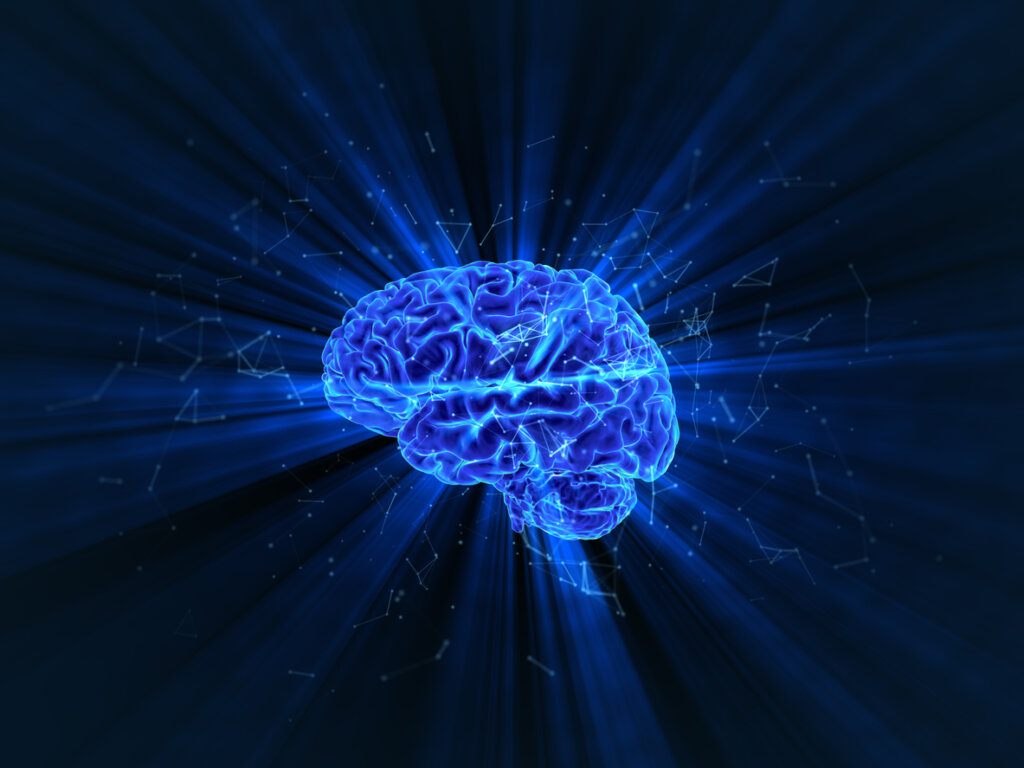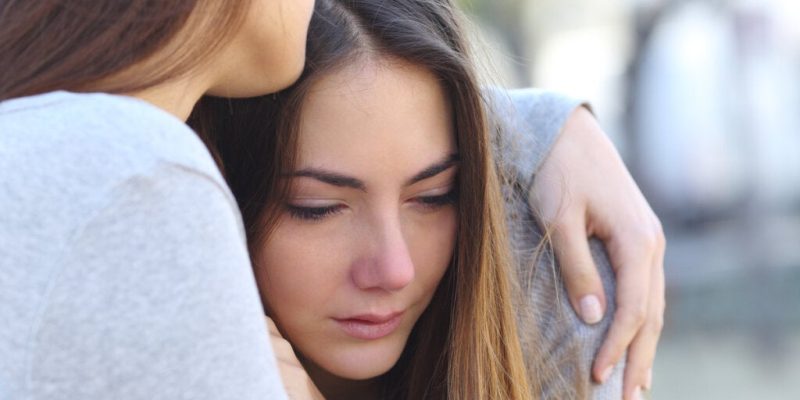Crying is a physiological response usually linked to the emotional world, although not always. For example, think of the effects of an onion. However, it’s more often a bodily reaction when you’re faced with a highly emotionally intense experience. The reasons for crying can be diverse. Among them are sadness, frustration, happiness, and fear.
Receiving bad news regarding an important project, losing a pet, finding out that your brother is going to be a father for the first time, unexpectedly crossing paths with a person who scares you, or witnessing a celebration of love are all understandable triggers for you to cry.
However, there are some things that aren’t so clear. Why do we cry? How is our body related to our emotions? What’s the role of the brain in crying?
Crying as a function
Some people cry every day, some only do it from time to time, while others have a hard time doing it at all. Nevertheless, we all need to shed tears to let go of the tension built up inside of us. It’s one of the ways that we, as humans, find to express our emotions.
Crying helps to regulate you. In fact, it fulfills a role similar to that played by sweat – wetting your skin and relieving a thermal sensation but on an emotional level. Whether it’s a few tears or a full-blown sob, it can either cushion the pain or channel the explosion of energy that occurs after great joy.
In addition, crying fulfills a social function. It makes it easier for others to notice your emotional state. Indeed, when others see you cry, it activates mirror neurons in them and brings you closer together. It’s your physiological system helping you obtain resources that you might not get otherwise.
What happens to your body when you cry?
Not all people cry for the same reasons. However, everyone’s face looks pretty much the same when they do: red eyes, tears spilling down their cheeks, a runny nose, and a downward slanting mouth. We all know what a person crying looks like.
Crying starts in your brain
Crying starts from a chain reaction within your body. An external or internal stimulus awakens signals that are sent to your brain so that it can then work its magic and make the tears flow.
The hypothalamus and the amygdala are two of the most important organs in the brain. Where they’re located is where the process of emotional reception occurs and the regulation of physiological responses begins. It’s the amygdala that sends the signal to the hypothalamus to activate the nervous system.
Once the brain has been notified of what’s happening, the sympathetic nervous system kicks into gear to protect you from the threatened emotional intensity. How does it protect you? Through crying. It causes the opening between your vocal cords to swell and feel tight, resulting in the typical lump in the throat that you feel when you’re about to cry. Also, your heart rate tends to speed up and your voice becomes shaky.

The tears begin to flow
The lacrimal glands are small glands found below the rim of the eyes. Their stimulation causes tears that rapidly accumulate in deposits located in the inner corners of the eyes. When these fill up, tears begin to trickle down, blurring vision. Simultaneously, they flood the nasal cavity.
Tears fulfill a protective function since they contain a component called lysozyme, which prevents the appearance of bacteria on the surface of the eye.
“Tears, which are spread evenly over the front surface of the eye during blinking, clean and lubricate the eye.”
-Anton Skorucak-
Why do you feel better after crying?
Allowing yourself to cry freely when you need to is a smart and useful response.
In fact, crying works as a natural pain reliever, as it gives you a sense of relief. There’s an explanation for this: your tears contain the adrenocorticotropic hormone, which regulates your response to stress.
On the other hand, crying involves mechanisms that require a lot of energy. Therefore, you tend to feel exhausted after doing so. The release of certain hormones such as endorphins and oxytocin help improve your mood and calm you down, which also means you feel tired to the point of falling asleep.
The post What Happens to Your Body When You Cry? appeared first on Exploring your mind.



















Comments